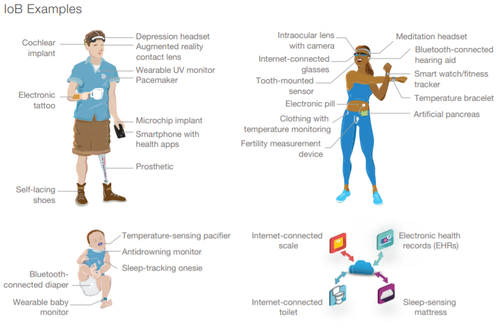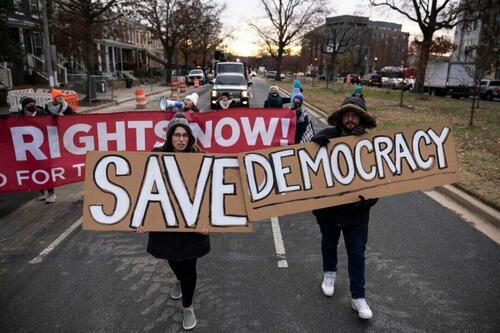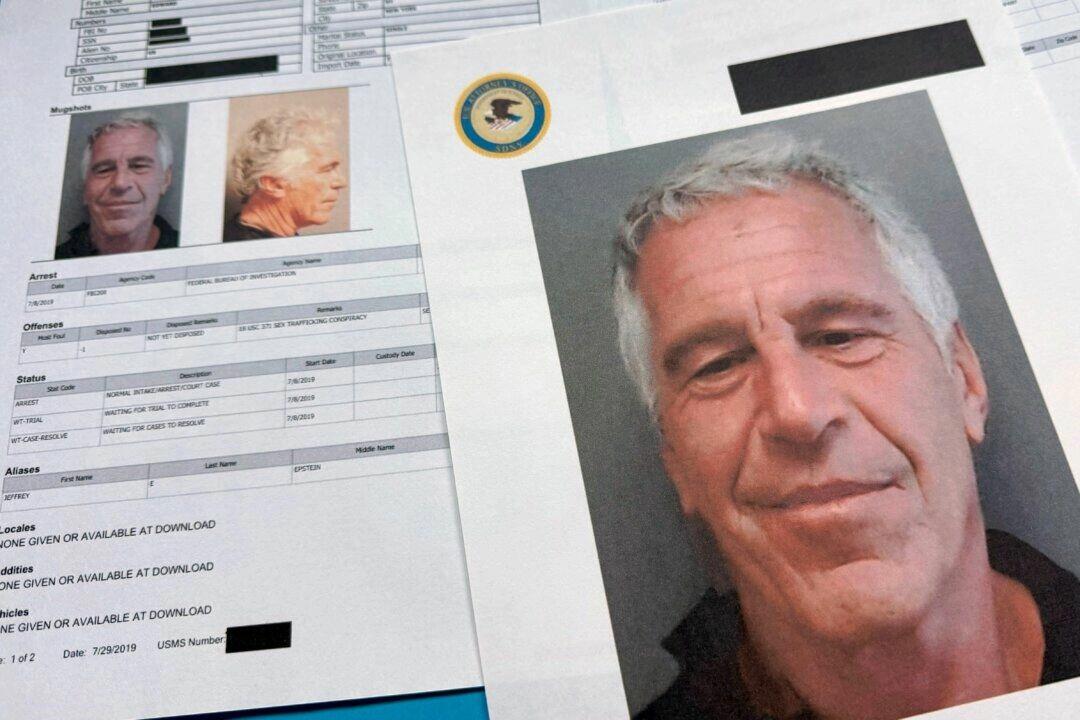The arrival of CBDC is, short of a nuclear war, THE most important change on the immediate horizon as well as the most dangerous one for individual freedom.
When introduced, there will be no turning back. My personal (educated) guess, is that it will be almost impossible to get it right (reason why it is not already here.)
You can get familiar with the subject bellow in this well argumented explanation of the system as well as issues related to its implementation.
Authored by Efrat Fenigson via Bitcoin Magazine,
The
current state of Central Bank Digital Currency Projects globally
summarized by Efrat Enigson, independent journalist and host of the
"You're The Voice" podcast...

“What underpins a world order is always the financial system.
We
are on the brink of a dramatic change where we are about to, and I'll
say this boldly, abandon the traditional system of money and accounting
and introduce a new one. And the new one is what we call blockchain.
It
means digital. It means having an almost perfect record of every single
transaction that happens in the economy, which will give us far greater
clarity over what's going on. It also raises huge dangers in terms of
the balance of power between states and citizens. In my opinion, we're
going to need a digital constitution of human rights if we're going to
have digital money.
Most people think that digital money is crypto and private, but what I see are superpowers introducing digital currency. The
Chinese were the first. The US is on the brink of moving in the same
direction. The Europeans have committed to that as well.”
This
revolutionary speech about a new financial system, was delivered at the
World Government Summit in March 2022 in Dubai, by Philippa "Pippa"
Malmgren, a member of the Council on Foreign Relations (CFR) and Chatham
House; her father, Harald Malmgren served as a senior advisor to US
Presidents Kennedy, Nixon, Ford and others. She’s a technology
entrepreneur and economist, who served as Special Assistant to President
George W. Bush, for Economic Policy on the National Economic Council
and is a former member of the President's Working Group on Financial
Markets and Corporate Governance.
Her words about the transition
to a new world order that requires a new financial structure correspond
well with the words of French President Emmanuel Macron in June 2023 at
the Global Finance Summit in Paris: "The world needs a public financial
shock to fight global warming, and the current system is not suitable
for dealing with the world's challenges." The president of Brazil, Lula
da Silva, also called for
"a clean slate" and said the Bretton Woods organizations (World Bank,
International Monetary Fund) do not serve their goals nor respond to
society's needs.
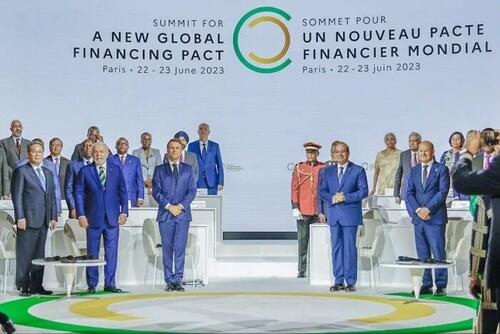
The Summit for a New Global Financing Pact. Photo: Ricardo Stuckert/PR
“THE NEW BRETTON WOODS MOMENT”
“A
new international monetary system is taking shape, some call it the new
Bretton Woods moment that needs to be seized to create a new global
financial governance,” says the investigative journalist Whitney Webb in a recent sitdown interview,
where she mention that according to Mark Carney, former governor of the
Bank of England & Bank of Canada and the UN Special Envoy for
Climate Action and Finance, the three pillars of the new multi-polar
world are Digital IDs, CBDCs and ESG, through a global carbon market.
All world governments are pushing this agenda, that in order for it to
succeed, all monetary systems and supporting systems must become digital
and rely on digital data.
A good example of this was revealed at an event of the Central Bank of
Israel with the Bank for International Settlements (BIS) – which I
attended – in September 2023 in Tel Aviv, where the “Genesis Project”
was presented. As part of this project, "green" bonds are issued, based
on carbon quotas in the CBDC infrastructure. This is how the climate
agenda is linked to financial markets.
“DEBT SERFDOM”
“Stablecoins
could be the way in which the US is further globalizing the dollar,
spreading its adoption directly to the world’s general public in order
to continue increasing its debt and encourage uptake and usage of the
dollar”, says Mark Goodwin, Editor in Chief of Bitcoin Magazine, in this
interview with Whitney Webb. He suggests that the politician’s outcry
of de-dollarization and the weakening of the dollar are a distraction
from perpetuating the dollar as the world’s reserve currency.
“While CBDCs are what people are becoming fearful and aware of, it may
just be the red herring, and the real strategy of the US dollar's
survival is highly regulated stablecoins (such as Tether), which can
easily be programmable, even more than CBDCs, as well as seized,
regulated and controlled indirectly by governments. 100 billion dollars
in treasuries were already purchased by Tether, its subsidiaries and
owners. Tether is positioned alongside the top 20 nation states buying
debt from the US, with around one tenth of China or Japan that have a
trillion dollars debt to the US”.
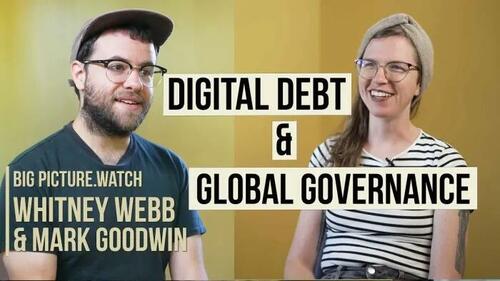
Whitney Webb & Mark Goodwin. Source: https://www.youtube.com/watch?v=yC9dJYqDZ9c
This
theory, together with the words of Mark Carney, Pippa Malmgren,
Emmanuel Macron & Lula Da Silva, join the calls of global leaders
and heads of states, pointing to the replacement of the monetary and
financial world order, to introduce a new monetary system. Many experts
say that we are reaching the end of the current fiat monetary system
experiment, which is destined to collapse. Since world leaders are aware
of this, they prefer to engineer a controlled demolition, to maintain
control and steer the course, and enter the new era with power firmly
within their grasp.
CENTRAL BANK DIGITAL CURRENCY SYSTEM (CBDC)
Central
Bank Digital Currencies (CBDC), tie the financial freedom of citizens
to the government and the banking establishment. The central bank issues
its centralized digital currencies, and essentially creates a new
monetary system, "fiat on steroids", a system that takes everything that
is bad in the fiat system, and adds more of it; surveillance, control,
censorship, and enforcement capabilities. A modern prison? Indeed, the
CBDC is the ultimate prototype of a prison without physical chains. By
connecting CBDCs to digital identity cards, and to government systems
such as universal basic income, social credits and more, we get the
ultimate control apparatus. This apparatus will dictate to citizens what
they’re allowed to purchase, what the permitted quotas are while
limiting consumption according to rules and use cases, at programmed
times, places and cadences. The system is able to determine the use of a
geographic radius (geo-fencing), and to determine expiration dates on
the money. Each remote controlled digital wallet can also be switched on
and off by its operators. More than 130 countries are in the initial
stages of piloting CBDC systems, of which 36 countries are in advanced
pilots, and 3 countries have already launched systems (Nigeria, Jamaica
and the Bahamas).
Ripple,
a digital payment network and transaction protocol that owns the
cryptocurrency XRP, is considered one of the most popular
cryptocurrencies, and is strategically positioning itself at the heart
of government financial innovation, aiming to be the cornerstone of
future CBDCs.
The company is in talks with about twenty
governments around the world to develop their CBDCs using Ripple's
technology. In May 2023, Ripple launched a dedicated CBDC platform to
assist central banks, governments and financial institutions around the
world in issuing CBDCs and stablecoins. To date, Ripple has partnered
with six governments for CBDC pilot projects: Georgia, Colombia, Montenegro, Hong Kong, Bhutan and the Republic of Palau.
The National Bank of Georgia,
for example, has chosen Ripple as its technology partner for its CBDC
pilot last year, citing Ripple's technical expertise and team
capabilities. Its interest in CBDCs is in leveraging modern
technologies, such as the programmability aspect of CBDCs, aiming to
create a platform with smart contract and programmable token
capabilities to stimulate innovation in the financial sector.
In the case of Bhutan,
Ripple’s technology was chosen in 2021 for the country’s CBDC project
to enable advanced cross-border payments, and assist in “financial
inclusion” - in line with Bhutan’s mission to increase financial
inclusion in Bhutan to 85% by 2023.
In 2022, Ripple reached the final stage of the G20 Techsprint CBDC Hackathon,
hosted by Indonesia and the Bank of International Settlements (BIS),
and in August 2023, the Republic of Palau launched a USD-backed digital
currency, developed by Ripple.
Promoting its platform as an
infrastructure for a CBDC, Ripple advocates for government regulation of
cryptocurrencies, and tries to position itself as the preferred
solution for CBDC projects. Its claim to fame of being the ideal CBDC
partner for governments is the combination of speed, efficiency, a
sustainable and "green" blockchain network that uses little energy
(compared to the Bitcoin network), and interoperability - the ability to
communicate and work with CBDC solutions in other countries on the
Ripple infrastructure. The company warns that
there is a risk for CBDC adoption by the public, caused mainly by a
lack of market education, and it encourages the programming and
expiration dates capabilities, which are perceived by most of the public
as particularly Orwellian features of CBDCs.
Ripple
encourages the abolition of cash (and a move to a cashless society),
and unsurprisingly, it promotes the climate agenda; The company's
website presents its commitment to a clean, prosperous and secure
low-carbon future, with a plan to reach carbon net-zero by 2030.
Apparently,
in line with Ripple’s expansion strategy vis-a-vis governments, the
company makes sure to recruit employees who came from central and
commercial banks. One of the company's top executives is Andrew Whitworth,
policy director at Ripple, who previously worked at the Bank of
England. At the same time as his role in Ripple, Whitworth also serves
as a Director of
the "Digital Pound Foundation", an organization that has declared
itself the authority on the Digital Pound; it advises and influences the
government's decisions regarding CBDC projects and deployments. Clearly
an inside connection such as this might give Ripple an advantage in
shaping digital currency policies to fit their platform and solutions.
Does this hint a conflict of interests, or at least an unfair play?
Another avenue through which institutional influence and implicit control over Ripple could manifest is via a legal battle with
the SEC (U.S. Securities and Exchange Commission) concerning the XRP
cryptocurrency. Engaging in such legal disputes inevitably positions
Ripple in a scenario where maintaining a positive relationship with
institutions becomes crucial. Consequently, it's no surprise that Ripple
prioritizes governments, central banks, and financial institutions as
its primary target audience in its market strategy.

Photo: Lord XRP Twitter account
INTERESTING DEVELOPMENTS IN CBDC
China spent
a couple of years rolling out relatively failed CBDC projects without
widespread adoption, while injecting 30 million yuan as free money to
encourage user adoption. Transactions using the digital yuan hit 1.8 trillion yuan (US$249 billion) in June 2023.
Recently,
significant progress has been made: the two main payment services and
applications in China - WeChat and Alipay - which have a traffic of
about 3-4 trillion dollars per year, integrated the Chinese CBDC service
into their applications. The central bank regulator made it
clear that digital yuan isn’t meant to compete with the two payments
giants. Rather, it’s supposed to play a complementary role.
Elon Musk,
who owns, among other things, the Twitter/X platform, has stated that
he wants to make the platform an "everything app" like the Chinese
WeChat, including payment management. Will X also follow the Chinese
route and integrate the CBDC solution into it, or will it try to become a
CBDC infrastructure itself with the help of Musk's favorite
cryptocurrency, the Dogecoin?
The CBDC pilot in Nigeria didn't
exactly take off either, after the citizens took to the streets to
protest the abolition of cash in the country, and resented the
introduction of an unneeded digital solution, while demanding the return
of cash. After a long and painful protest, the cash was returned
alongside the new digital currency, which was not canceled and became
part of reality. Furthermore, a new stablecoin is in preparation in
Sandbox mode in Nigeria. The cNGN is
a Naira stablecoin which some claim has more potential than the e-Naira
to be widely adopted. “The stablecoin will be more broadly
interoperable than the CBDC, which is only available in the central
bank’s wallet. At launch, the central bank’s wallet usability was weak,
although it is now quite good”, said Bolu Abiodun, a reporter at Techpoint Africa.

Source
The
UK saw a strong public backlash to Prime Minister Rishi Sunak last
year, with more than 50,000 responses sent to the Bank of England
following a public hearing on the Digital Pound, aka the UK's national
CBDC.
GERMANY - AWARENESS OF "EXCESSIVE SURVEILLANCE"
In Germany, the technical guidelines document for
a digital currency of a central bank was published in January 2024.
Below are several quotes from the document, reflecting the tyrannical
nature of the new currency, and the awareness of the central bank for
trust issues it can create:
- Programmability is
the institution’s authority to dedicate your money for certain uses,
and to prohibit the use of your wallet when it is "outside the permitted
scope".
- "The central bank can revoke CBDC notes, e. g. as
an instrument of monetary control. Revocation of CBDC notes is performed
by an authorized entity, the revocation authority, controlled and
operated by the central bank." This sounds like a technique to
confiscate and apply a shelf life to money.
- "Payments
permitted under certain restrictions.. if the central bank sees fit to
impose them" - the document lists restrictions that can be applied to
wallets, depending on the amount of personal information that will be
provided. For example, the amount of money in the wallet, the number of
payments per day, the amount of money per transaction or per day.
- The
good news: The German central bank is aware of the possibility of
public opposition to a surveillance system: "Many of these design
choices are general decisions on the trade-off between excessive
surveillance and legitimate monitoring functions for AML and KYC
purposes in conjunction with measures for mitigating fraud and
misconduct. These decisions are extremely sensitive in nature and can
strongly influence the level of trust that users place into the CBDC”.
ISRAEL - THE DIGITAL SHEKEL WILL BE DISTRIBUTED THROUGH COMMERCIAL BANKS
Israel
takes an extensive and active part in various CBDC pilots, such as the
Sela project, Eden, Icebreaker and more, which I have reported on
extensively in the past. The Deputy Governor of the Bank of Israel
announced that in December 2024 a technical design document for the
Digital Shekel will be published, and its implementation will then begin
in partnership with the private sector.
The Bank of Israel's latest document from last week covers the proposed architecture of the Digital Shekel. Here are some interesting points from the document:
The
distribution of the Digital Shekel will be two-tiered: instead of
direct contact between consumers and the central bank for funding and
defunding, an indirect method similar to the distribution of cash today
will be used. The banks will purchase digital shekels from the central
bank in large quantities and transfer them to customers upon wallet
charging.
The system will be able to apply and enforce
limits, for example limits on the balance that users are allowed to hold
in the Digital Shekel.
The system will support the possibility of applying interest on the Digital Shekel.
Users
will be able to access the Digital Shekel through several payment
providers, including credit cards, Google/Apple Pay, wearables, payment
apps and more.
Unlike most retail CBDC solutions,
Israel's model allows users to open a wallet with a payment service
provider (PSP) and connect to multiple third-party banks to fund and
defund balances.
Another interesting development in Israel is the announcement of a plan to launch a new stablecoin pegged to the shekel, called BILS,
by the exchange platform, Bits Of Gold. Crypto Jungle website reports
that the Israeli Capital Market Authority approved the pilot, according
to the draft principles published by the Central Bank of Israel.
Interesting to note that the company providing the infrastructure for
the issuance and custody of the currency is the Israeli technology giant
"FireBlocks", which took part in the "Eden"
pilot project of the Tel Aviv Stock Exchange for the issuance of
digital bonds, built to adapt in the future to a potential CBDC
infrastructure.
NO INTERNET? DON'T WORRY, GOVERNMENTS WILL TAKE CARE OF CONNECTIVITY ANYWAY
A
number of CBDC pilots, like in India, the European Union and more,
focus on the adoption of the system by everyone, even amongst people
without internet access. The washed-up name "financial inclusion"
implies that the system will not skip anyone, not even citizens without
Internet connectivity in remote areas, or without reception. In India for
example, there are 683 million people living without an internet
connection and largely outside the control of the state. The Reserve
Bank of India (RBI) plans to bring these remote areas into a new
surveillance network through various technological means. A successful
launch of CBDC in India also corresponds with the government's
overarching goal of reducing cash usage and improving financial
monitoring.
THAILAND - FREE MONEY FOR THE MASSES
In
September 2023, the Thai government announced that any Thai citizen
over the age of 16 who chooses to participate in the CBDC pilot, will
receive free CBDC worth $280 (10,000 baht) - quite a lot of money in
Thai terms. This digital money will be loaded into the digital wallet
application and will be available for use within 6 months, and within a
radius of 4 km from the residence of the registered citizens. The pilot
targets low-income citizens as a first stage, and later expands to
entrepreneurs and small business operators - provided they are
registered in the tax system. In Thailand many citizens are not
registered in the government systems and not everyone has a bank
account. It seems that air-dropping "free money" is another tactic to
lure citizens into government systems, with the bait of “free”
controlled government money. But is there such a thing as “free lunch”?
THE EUROPEAN UNION - A POSITIVE MARKETING CAMPAIGN IN HIGH GEAR
The
European Union launched a marketing campaign to promote the digital
euro about six months ago, to start educating the European public about a
reality where that they will be obliged to use a supervised digital
euro, led by Christine Lagarde, who was previously convicted of crimes and was promoted to serve as the governor of the European Central Bank, the ECB.
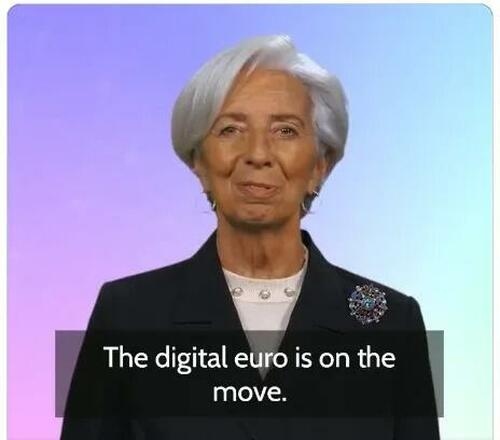
The Digital Euro new marketing campaign. Source: Christine Lagarde’s Twitter account
At
the same time, a charade is going on in the European Union Parliament
where the dangers of CBDCs are being discussed, only thanks to the
public awareness and discourse, while Lagarde rushes forward and kicks
off the marketing campaign to instill in the public the following
messages: the digital euro is easy, safe, fast and reliable. Not a word
about its Orwellian capabilities to track, program, limit and condition
activity through expiration dates, geo-fencing, and remote on and off
switching.

Another ECB campaign video for the Digital Euro
THE DIGITAL EURO WILL NOT BE ANONYMOUS
In
a discussion at the European Union Council in 2023, Lagarde emphasizes a
point: the digital euro will not be anonymous. Privacy will exist in
the system, but not anonymity. Let’s break this up in a different way:
for the banks, the key to surveillance and control is identification.
The bank must know who the citizen is and verify their identity, in
order to exercise law enforcement or regulations, through technological
restrictions. Lagarde's claim that the technology will allow privacy but
not anonymity is unfounded: apparently the central bank considers
itself and the financial service providers some kind of God, since in
front of them the citizen will be identified, and therefore it is not
clear what kind of privacy can exist, without anonymity.
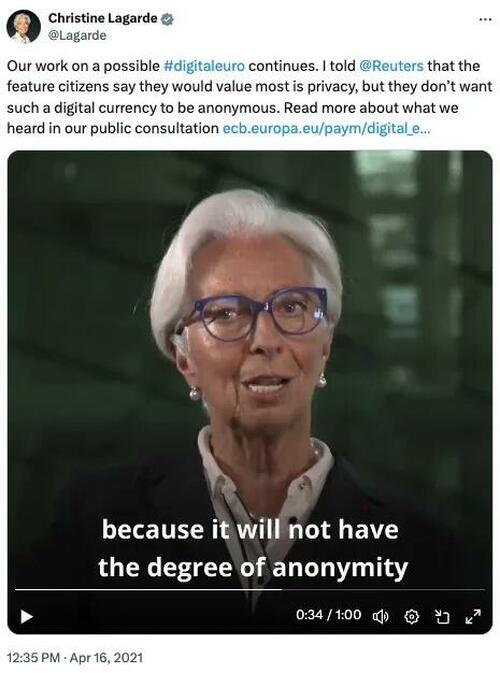
Source: Christine Lagarde’s Twitter account
In a presentation from
March 2024, the ECB presents a timetable for the Digital Euro. In
November 2025, the development and implementation phase will begin, with
the completion of the "democratic" legislative process.
The
timing of the launch of the Digital Euro corresponds well with the
European Union's initiative to issue digital identity cards to all EU
residents between now and 2030, to enable the necessary government
identification and tracking of its citizens. Identical initiatives are
enacted and promoted in many other countries around the world at the
same time. Where I live, in Israel, ID cards and passports have been
mandatory and digital for many years, and also biometric since 2013 -
therefore there is no need to start the marketing campaign for the
Digital Shekel yet, as the digital infrastructure exists hence the first
step of digitalization is already done.
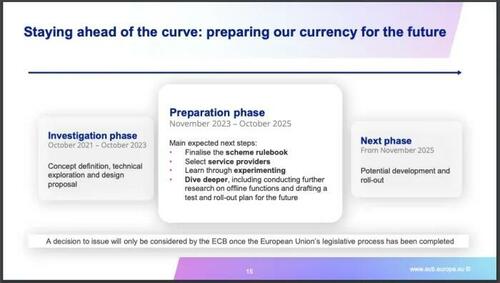
The timetable of the Digital Euro by the ECB
This
phase of the project is the "preparation phase", the ECB reveals, in
which they are preparing for the launch phase of the Digital Euro. Of
course, we are reassured that no final decision has yet been made
regarding the launch of the CBDC, and this will only happen with the
approval of the "Government Council" after the completion of the
democratic legislative process of the European Union. Therefore, in
parallel with the democratic debate for or against the Digital Euro, the
development of the technology will continue, in order to be prepared
for the launch.
Central bank governors such as Lagarde and Bank of Israel Governor Amir Yaron insist
that the CBDC is digital cash, and also insist that physical cash will
not be abolished. It is possible that these central bankers feel the
need to make a U-turn from the incriminating speech of the head of the
Bank for International Settlements (BIS), Augustin Carstens, who caused a
public outcry when he stated in 2020 that the CBDC technology, unlike
cash, will allow monitoring of financial transactions and will be a
means of enforcement by the establishment:
“The key difference
with the CBDC is the central bank will have absolute control of the
rules and regulations that will determine the use of that
expression (money) of central bank liability, and also we will have the technology to enforce that.”
Agustín Carstens - BIS General Manager
THE FUTURE: CENTRALIZED AND CONTROLLED, OR FREE, DECENTRALIZED AND SECURE?
Ayn
Rand, author and philosopher, said that "We can ignore reality, but we
cannot ignore the consequences of ignoring reality." Are we taking giant
steps towards a new monetary reality, where the fiat currencies we know
become fiat on steroids, aka CBDCs? Or into the reality of "stable" and
closely regulated cryptocurrencies, tethered to fiat? Either way, the
feeling is that the establishment is doing everything to preserve the
debt economy, and its inherent modern slavery. The only way to break
these fiat-matrix boundaries is to opt out and enter into a new system,
which seems to run in a parallel reality, the Bitcoin system. On the
Bitcoin standard, under self-custody, no third party has the ability to
confiscate, program or take over private assets. Not even the government
or the state. Bitcoin uses a lot of energy for its mining, but this
proof-of-work mechanism makes the blockchain network extremely secure
and the Bitcoin currency very valuable. Bitcoin is "safe money", which
is out of reach for the establishment. Unlike most other
cryptocurrencies, Bitcoin is a digital currency without intermediaries
or third parties (peer-to-peer) in a decentralized and secure network,
which allows everyone to be their own bank, instead of relying on banks
and external parties. With a fixed and known supply, it represents the
most powerful digital asset on the market as a store of value and as a unit of account, and in the future will also be used as a medium of exchange.
In my recent interview with the media and finance expert, and one of the most famous Bitcoiners, Max Keiser,
he compared the CBDC to a parasitic and centralized cancer: "If you
were to look at the amount of energy that Bitcoin uses and the rate at
which it's increasing, you would say good is triumphing over evil. So
this gives me a lot of hope. And I don't think centralization in
anything works at all, except cancer. Cancer is the only thing that
seems to work to be overly centralized and parasitic. That's the cancer
model, but I think we're gonna win against the cancer of CBDCs.”
Follow Efrat's work here.




